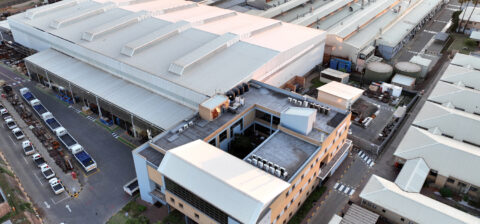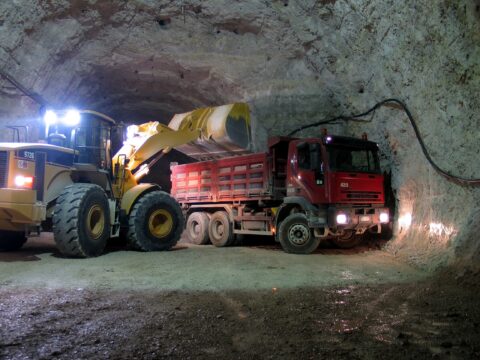SA Mining PR
Decarbonisation And South Africa As We Move Further Into The 21st Century
By Prof. Gordon Smith (Pr Eng, PhD), Past President of the Southern African Institute of Mining and Metallurgy, Advisor/Non Executive Director
The Platinum Group Metals (PGM’s) industry has been highly cyclical, and volatile and has, since then, been shaped by a complex interplay of macroeconomic factors, technological shifts, regulatory changes, and geopolitical events. Steady demand from the automotive and industrial sectors in the early to mid-2000’s resulted in gradual price increases and stable south African output with this expansion being curtailed by the global financial crisis of 2008/09. Subsequently during 2010 to 2013 moderate market growth resulted from a stimulus driven global economic rebound and resurgence of autocatalysis demand. The 2014 to 2019 period was volatile with significant South African supply disruptions resulting from electricity supply shortfalls and extended labour unrest in the South African PGM industry escalating supply fears and driving pu palladium and rhodium prices. COVID-19 supply shocks during 2020/21 subsequentially resulted in record palladium prices, with 2022-2024 being a period of correction and stabilisation, recycling growth, increased electric vehicle adoption pressures and increasing geopolitical tensions.
Unsurprisingly 2025 is proving to be another year of disruption and complexity driven by geopolitical fragmentation, global trade readjustment, military conflicts, increasing penetration of artificial intelligence, and climate change coupled with widening global inequality and social conflict.
However, the one constant amongst this roiling change is that PGM’s are critical to technological innovation and the clean energy transition because of their unique catalytic, conductive, heat and corrosion-resistant properties. The PGM’s, in conjunction with the so-called Rare-Earth elements (lanthanides, yttrium, scandium), are probably the metals that will unlock the ‘yet to be discovered’ technological opportunities for humanity.
PGMs are indispensable to several high-impact industries with application in the automotive sector, primarily in catalytic converters to reduce harmful emissions from internal combustion engines and meet global emissions standards, whilst the chemical industry utilises PGM’s in the production of nitric acid, fertilizers, and explosives. Petroleum refining relies extensively on platinum catalysts to improve the efficiency and yield of high-quality fuels and for polymer production whilst PGM corrosion resistance and conductivity make them ideal for electrical contacts, electrodes, surgical tools and precision instruments in electronics and medical implants. The clean energy sector benefits from application in fuel cells and hydrogen electrolysers, aerospace in aircraft turbines, electronics for hard disks and sensors. The investment sector has responded with a range of instruments for hedging against inflation and geopolitical risk whilst the jewellery sector remains resilient with applications platinum, palladium and ruthenium to create beautiful, durable luxury items with global appeal.
Outside of these well-known applications the PGM’s are metals for the future, with strategic importance in humanity’s adaptation to climate change, as enablers of a lower carbon future.
PGM’s find application in:
Catalysts for Green Hydrogen Production
- Platinum and Iridium are essential in proton exchange membrane (PEM) electrolysers, which split water into hydrogen and oxygen using renewable electricity.
- These electrolysers are ideal for grid balancing, allowing excess renewable energy to be stored as hydrogen and reused when needed.
Fuel Cell Technology
- PGMs are used in PEM fuel cells, which convert hydrogen back into electricity with zero emissions.
- Ruthenium and platinum are key components in fuel cells for everything from small devices to heavy-duty transport.
Decarbonising Heavy Transport
- Hydrogen fuel cells powered by PGMs offer a viable alternative to batteries for long-haul trucking, marine, and aviation—sectors that require energy-dense fuels.
Cleaner Combustion Engines
- PGMs in auto catalysts convert harmful gases (CO, NOx, hydrocarbons) into less harmful substances, drastically reducing vehicle emissions.
- Since the 1970s, PGMs have helped cut emissions from vehicles by up to 99%.
Industrial Decarbonisation
- PGMs enable zero-carbon heat and power generation in stationary fuel cells.
- They also support green hydrogen as a feedstock for steelmaking, ammonia production, and synthetic fuels.
Emerging Applications
- PGM’s are being explored for carbon capture and utilization, synthetic fuel production, and next-gen battery technologies.
Within this context of current and future contribution to a lower carbon future, South Africa is positioned as a strategic player in the global energy transition given its dominant holding (~80%) of known PGM mineral reserves. The need to maintain stability and integrity of the associated PGM industrial ecosystem cannot be understated as an enabler of a better world for future generations.





